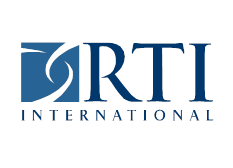Sorry, your search did not match any of our live jobs
We suggest that you:

JOB SUMMARY |
|
| Company | RTI |
| Industry | NGO/IGO/INGO |
| Category | Energy, Oil &... |
| Location | Accra |
| Job Status | Contractor/Co... |
| Salary | GH¢ |
| Education | Advanced Degr... |
| Experience | 3 years |
| Job Expires | May 01, 2020 |
| Contact | ... |
| |
|
|
Company Profile RTI (www.rti.org) is an independent, non-profit organization dedicated to conducting innovative, multidisciplinary research that improves the human condition. With a worldwide staff of more than 4,000 people, RTI offers innovative research and development and multidisciplinary services.
RTI International is supporting education development around the world by strengthening education policy, management and practice to achieve measurable improvement in teaching and learning. From our well-established reputation in education system strengthening, to innovative work in early grade assessment and learning, RTI is improving education quality, relevance and efficiency through implementation of projects funded by USAID, DFID and other donors and clients.
Job Description Statement of Work PAOP Productive Use of Energy (PUE) Support
About the Power Africa Off-grid Project The USAID-funded Power Africa Off-grid Project (‘PAOP’) provides technical assistance and targeted grant funding to support the development of Africa's off-grid solar home system (SHS) and mini-grid sectors. Through a team of resident technical advisors across East and West Africa, PAOP works with companies, investors, and governments to advance the role of the private sector in extending energy access. Background - Activirty Description for Productive Use Assessment in Ghana PAOP is providing support to many off-grid private sector organizations in Ghana, including. vendors, financial institutions, and other companies that work along the agriculture value chain. PAOP seeks to provide support to professional organizations to increase the number of productive uses of energy sales. There are several productive use sub-sectors where solar power can immediately add value and build income. Solar irrigation is one of the most promising sub sectors in Ghana, as well as refrigeration and agro-processing of crops. Although Ghana has experienced several irrigation projects initiated by donors such as the World Bank, IFAD, AfDB and USAID, the private sector could be involved, especially when it comes to extending the product portfolio of existing developers to productive uses of energy, and for the financing of smallholder farmers by MFIs and other financial institutions. Because Ghana has a relatively higher electrification rate than the regional average, particular emphasis should be placed on remote rural areas, and especially on rural communities residing in the small island of Lake Volta, as the most economical solutions for them will be mini-grid or solar home systems. Off-grid solar systems can add value within the agriculture sectors in Ghana, as well as boosting the primary economic sectors in the country. Many productive use applications are beginning to emerge in rural Ghana, notably, solar irrigated pumps, agro-processing, aquaculture, mobile phone charging, and refrigeration. However, off-grid companies in Ghana require more information on the opportunities for off-grid solutions in the productive use sector as well as stakeholders involved in. Objectives
Product/Output
Timeline
Indicative level of efforts: Level of efforts – 20 working days (8 hours = 1 working day)
Required Skills or Experience
How To Apply Sorry, job has expired.
Note
Please note, employers receive numerous applications per posting and will only shortlist the most qualified candidates. Also Jobsinghana.com is not involved in any decision made by an employer/recruiter and therefore does not guarantee that applications sent will result in a candidate being shortlisted/selected for that position. | ||||||||||||||||||||||||||||